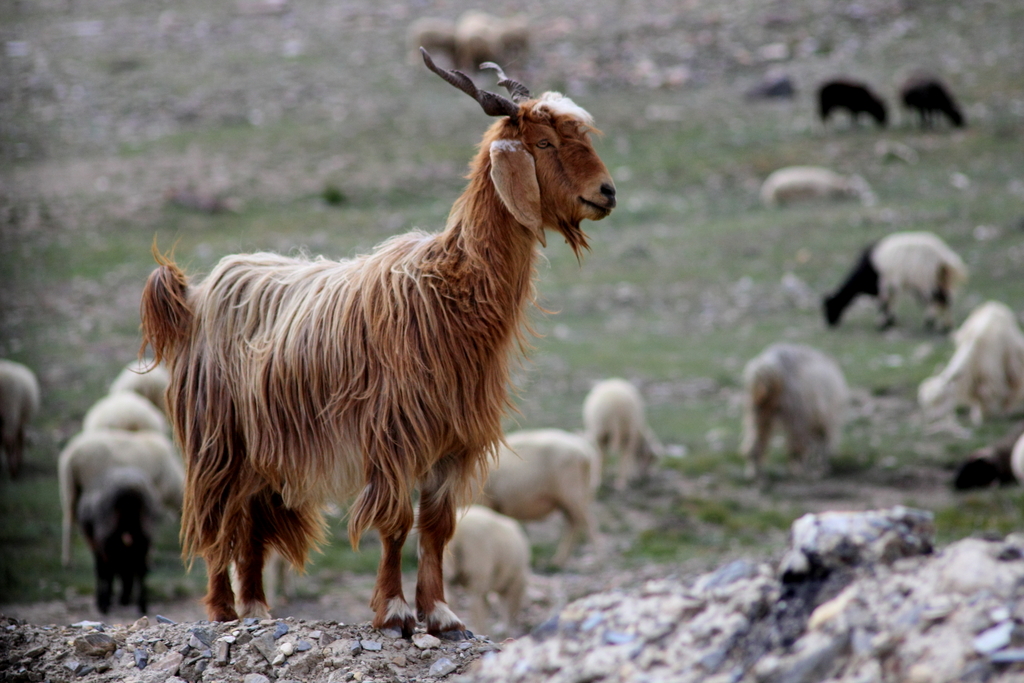

Wool of Himalayan goats – the raw material of Pashmina – is being collected for quality test in Mustang.
The International Trade Centre is testing wool quality in Nepal for the first time in coordination with international pashmina experts, the national agriculture research council, Nepal Pashmina Industries Association, and Mountain Goat Pashmina Farmers Association.
Vice-Chairperson of Nepal Pashmina Industries Association Dhan Prasad Lamichhane said the collected wool samples would be sent to the internationally- accredited lab and the Nepal Bureau of Standards and Metrology for testing its commercial quality and standards.
“We are collecting 800 samples of wool extracted from mountain goats being reared in Lomanthang, Loghekar Damodarkunda, Waragung Muktichhetra, and Gharpajhong Rural Municipalities”, he said, adding sample wool would be taken out from mountain goats of different color, age, and species reared by 160 farmers of the four rural municipalities.
Nine trained professionals have been mobilized to extract wool from mountain goats in the presence of representatives from the Association, NARC, and the international trade center.
“The quality of Pashmina affects its market price”, said Sichan Shrestha, a specialist at International Trade Centre, adding, “There may be variation in the quality of wool of Mustang. The quality testing would help develop a breed of mountain goats, carry out research in the field, and expand international marketing of wool.
The wool sample collection being done in Mustang for the first time would help spell out the quality of pashmina obtained from mountain goats, it is claimed. “Pashmina obtained from Chyangra is considered to be of good quality. But, an official study was not undertaken to consider this aspect”, a NARC official said.
“This would help design breed development program being based on the research”, the official added.
As many as 52,00 mountain goats are being reared in Mustang, the Veterinary Hospital and Livestock Service Expert Centre, Mustang. —